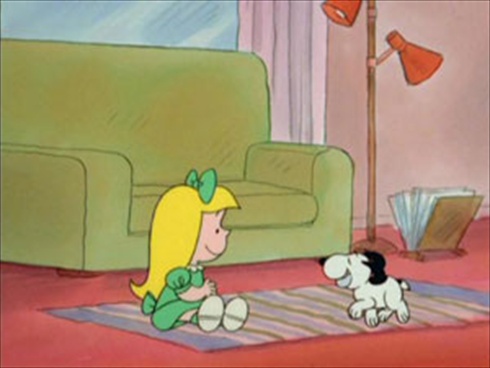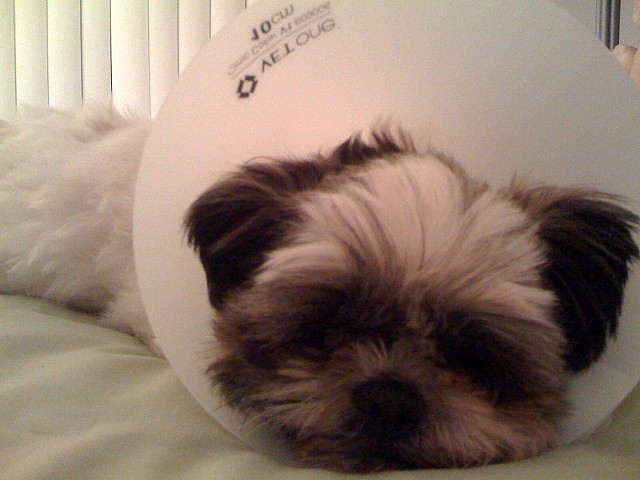So your home is all ready for a puppy? The puppy already has food, a food dish, bed and toys are all ready.
Below are some questions and answers on what else you need to know to prepare for a new puppy:
Q: Do I need to puppy proof my house? If so, how do I do it?
A: Puppies are like children. They love to learn and they’re inquisitive. And just like with children, you have to keep things they can chew on and swallow out of reach. So keep toys away, and don’t leave food where they can get to it, especially candy or foods that could make them sick. Keep trash cans secured or they will get into them and eat bones and beer bottle tops and other things that are dangerous.
Q: How soon does my new puppy need to see a vet?
A: As soon as possible. Many breeders and adoption agencies will have something like a 48-hour guarantee, so you want to get it done in that time. But even without that, you still should get the puppy in within a day or two. That way, if there’s something wrong, we can catch it early and get it before it becomes a big problem.
Q: At what age should my puppy start his vaccinations? Why is this important?
A: Vaccinations are usually started at about eight weeks. Then they get a series every three weeks until they’re 16 weeks of age. Most puppies get three to four series of vaccines, and after that it’s just the yearly vaccines.
Q: How dangerous are distemper and the parvo virus to my puppy?
A: Distemper and parvo are the most dangerous viruses that can affect a puppy. They are potentially deadly. They are the main reason puppies are vaccinated early. Distemper is especially deadly. If we catch parvo early, there’s a good success rate with treatment.
Q: What other illnesses are common in puppies?
A: Intestinal worms — hookworms and roundworms — are pretty common. Demodectic mange is very common with puppies. Gastrointestinal issues are pretty common in puppies, both diarrhea and vomiting. Their intestinal system and colon are still growing and are easily disrupted.
Q: Do all puppies have worms?
A: Not all puppies, but it is very common for puppies to have roundworms or hookworms, either passed in utero or through a mothers’ milk. Because worm infection is so common, we normally deworm puppies just to be safe. Fecal samples might not show parasites, but it’s so common that it’s almost irresponsible not to deworm a puppy.
Q: Can puppies have heartworms?
A: Puppies can be infected any time after birth. But heartworms take six months to mature, so even if a puppy right out of the womb is bitten by an infected mosquito, he wouldn’t test positive for heartworms until he’s about six months old.
Q: Can I flea dip my puppy or put other flea products on him if he has fleas and ticks?
A: You have to be very careful. Most flea and tick products aren’t safe for puppies and some could even kill them. It’s best to talk to your veterinarian if you have this problem. The vet can give you something safe for your puppy and tell you how to administer it correctly.
Q: What should I feed my new puppy, and why did he develop diarrhea right after I brought him home?
A: He has diarrhea because he’s stressed. You’ve changed his environment. He’s left his siblings and his mother. Stress affects an animal’s gastrointestinal system before it affects anything else. Generally, they get over this in the first week.
Q: Is it OK to put a collar and tag on a small puppy? And why do I need to check the collar often?
A: Yes, it’s good to keep a collar and tag on your puppy for identification purposes in case it gets lost. But you have to check it almost daily because puppies grow so quickly that the collar can end up choking him if it’s not adjusted as he grows. We have had to surgically remove collars from a dog’s neck. People put a collar on a puppy and then forget to adjust it, and as the dog grows the collar doesn’t. And these aren’t just dogs that are outside tied to a tree. I’ve seen it happen to dogs that slept with their people every night. The owners just didn’t think to adjust the collar. It’s something people overlook.
Do you have any other questions about how to prepare for puppies or on dog health in general? Ask away and I will find the answers and post them here.





Leave a Reply